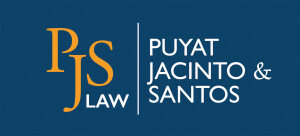On March 26, Philippines President Rodrigo Duterte signed into law the Corporate Recovery and Tax Incentives for Enterprises (CREATE) Law, with several line-item vetoes of the version of the bill endorsed by the legislature.
CREATE (Republic Act No. 11534) significantly amends further the provisions of the National Internal Revenue Code (Tax Code) after its overhaul by the Tax Reform for Acceleration and Inclusion Act (TRAIN) which took effect on January 1, 2018. CREATE also amends or repeals various laws granting tax incentives to investors, including incentives under the Omnibus Investments Code, the Special Economic Zone Act, and the charters of special economic zones. Except for the specific provisions in the law which provides its effectivity, CREATE is set to take effect 15 days after its publication in the Official Gazette or other media.
Highlights of CREATE Amending Tax Code:
- Effective from July 1, 2020, the income tax rates of domestic corporations, in general, and resident foreign corporations are reduced from 30% to 25%. For domestic corporations with taxable income not exceeding ₱5 million and with total assets not exceeding ₱100 million, the income tax rate is reduced from 30% to 20%. Effective January 1, 2021, the income tax rate of nonresident foreign corporations is reduced from 30% to 25% of gross income. Additionally, regional operating headquarters (ROHQs), previously subject to the preferential income tax rate of 10% of taxable income, will be subject to the regular corporate income tax rate of 25% of taxable income;
- Capital gains on the sale of shares in a domestic corporation by foreign corporations are now taxed at 15% of net capital gains, on par with the capital gains tax on the sale of shares by individuals and domestic corporations;
- Domestic corporations, taxable on their worldwide income, are generally subject to income tax on their foreign-sourced dividends. Under CREATE, however, foreign-sourced dividends of a domestic corporation, where the domestic corporation owns at least 20% of the outstanding shares of the foreign corporation for at least two years from the dividend declaration, may be exempt from tax provided the funds received or remitted into the Philippines are reinvested in the business operations of the domestic corporation within the next taxable year. Dividend payments by the domestic corporation qualify as reinvestment so foreign-sourced dividends may pass through tax-free in the same manner as dividends received from other domestic corporations;
- The improperly accumulated earnings tax (IAET), imposed on closely-held corporations that accumulate their earnings beyond the reasonable needs of the business, was repealed. However, while corporations that inordinately defer the declaration of dividends are no longer at risk for 10% IAET, the improper accumulation of earnings is still prohibited under the Revised Corporation Code. Fines and other penalties may be imposed by the Securities and Exchange Commission (SEC).
Pandemic Response
Temporary reprieve is extended to SMEs and corporations that experienced difficulties during the lockdown:
- the percentage tax on non-VAT registered taxpayers with gross annual sales and/or receipts not exceeding ₱3 million is reduced from 3% to 1% effective July 1, 2020, to June 30, 2023;
- the rate of minimum corporate income tax (MCIT), applied to corporations beginning on the fourth taxable year following commencement of operations, is reduced from 2% to 1% effective July 1, 2020, to June 30, 2023; and
- the income tax rate on proprietary educational institutions and hospitals is reduced from 10% to 1% effective July 1, 2020, to June 30, 2023. The Bureau of Internal Revenue (BIR) has yet to clarify if it will motu proprio refund or allow as credit the 2% difference to non-VAT taxpayers who paid their 3% percentage tax for the periods July 1, 2020, to December 31, 2020, or if an administrative claim for refund of erroneously paid taxes must be filed.
Investment Incentives
Investments made prior to CREATE and enjoying income tax holiday (ITH) under the Omnibus Investments Code and special laws will continue enjoying ITH pursuant to their registration. However, enterprises enjoying ITH plus the special corporate income tax of 5% of gross income (SCIT) are allowed to avail of the 5% SCIT for only ten years. Under the old rule, the registered enterprises granted 5% SCIT may avail of it continuously if they remain qualified and registered. The President vetoed the proposal to allow existing registered enterprises to apply for further extensions of incentives for the same activity.
Qualified export enterprises may avail of four to seven years ITH, depending on location and industry priorities, to be followed by ten years of 5% SCIT or enhanced deductions. On the other hand, qualified domestic market enterprises may avail of four to seven years ITH, depending on location and industry priorities, to be followed by five years of enhanced deductions.
Authors:


Virginia Viray Pearl Cabali
Senior Partner, Tax and M&A Partner, Tax and Real Estate Transactions
This article is for informational and educational purposes only. It does not constitute legal advice or legal opinion.






















